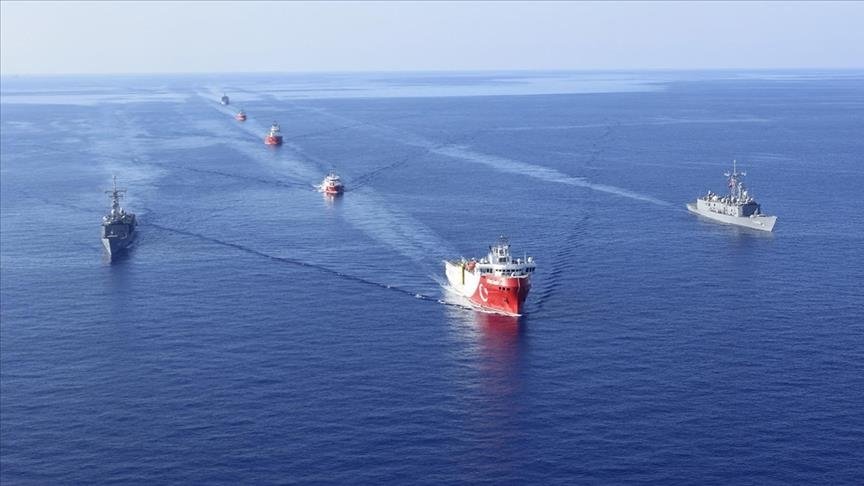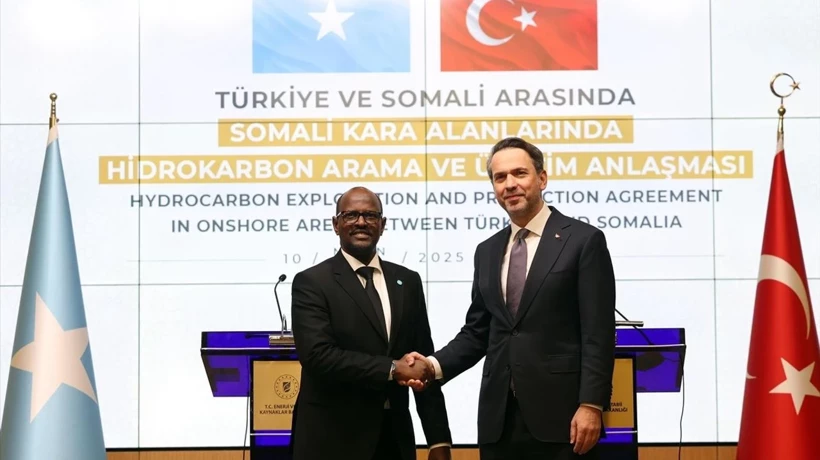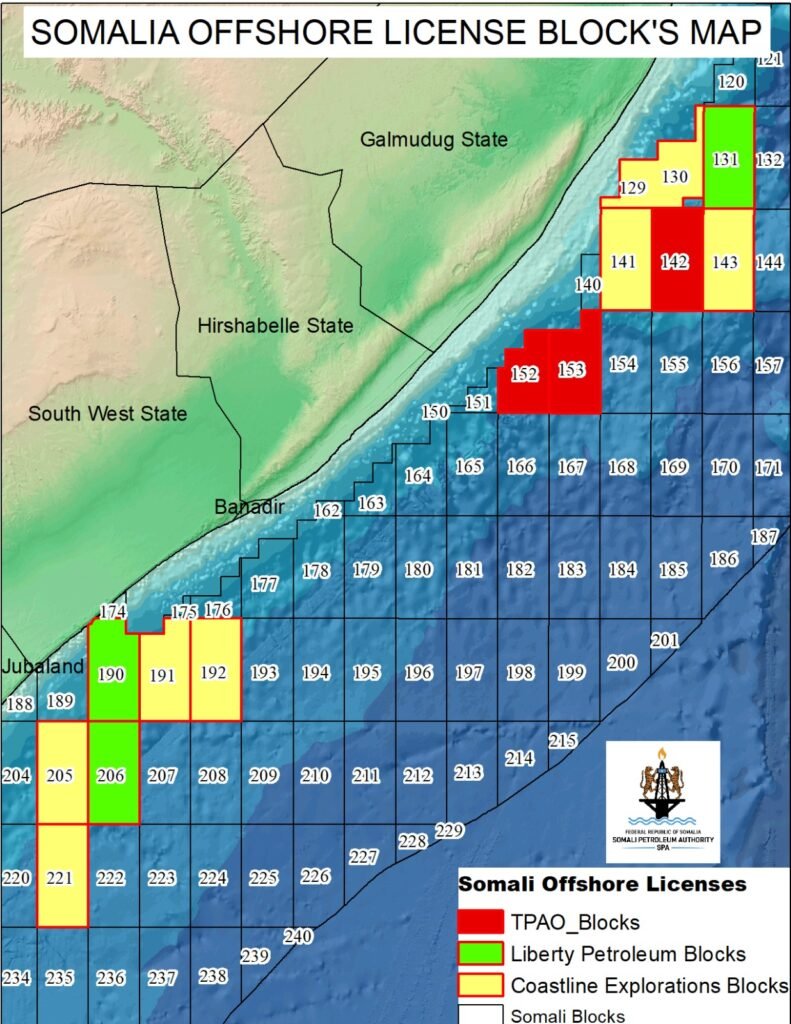
Türkiye and Somalia: Strategic Energy Partnership Amid Rising Geopolitical Stakes
Ankara’s expanding footprint in the Horn of Africa shifts from humanitarian aid to energy and security cooperation
Table Of Content
- Ankara-Mogadishu Energy Alliance Evolves
- Strategic Geography and Maritime Interests
- Scope and Duration of the Energy Agreement
- Minister Bayraktar’s Vision for a Win-Win Future
- Economic and Developmental Implications for Somalia
- Debate and Regional Reactions
- Türkiye Reaches New Milestone in Offshore Energy Exploration in Somalia in 2025
Ankara-Mogadishu Energy Alliance Evolves
Türkiye’s initial engagement with Somalia focused primarily on humanitarian assistance and infrastructure development, helping lay the foundation for strong diplomatic relations. These ties have since deepened through a maritime defense cooperation agreement, which has effectively laid the security groundwork for broader energy collaboration.
What began as a soft power model centered on aid and capacity building has now matured into a strategic partnership characterized by direct energy investment and security guarantees.
Strategic Geography and Maritime Interests
The Horn of Africa, positioned along one of the world’s most critical maritime trade corridors, is of growing geopolitical importance. Somalia’s location along major shipping routes and its untapped energy potential make it a focal point for regional and global powers alike. Thus, the Türkiye-Somalia energy deal is not just about bilateral cooperation—it also has implications for regional influence and control over vital maritime passages.
Scope and Duration of the Energy Agreement
The agreement spans 10 years and covers a wide range of activities, including offshore oil and gas exploration, development, production, and infrastructure expansion. Türkiye is expected to play a central role throughout the full lifecycle of energy development—from discovery to commercialization.
The agreement also allows for potential joint ventures and cooperative operational models. Türkiye has committed to supplying technological capabilities, infrastructure, and human resources—highlighting a significant capacity-building component that holds particular relevance from Somalia’s perspective in terms of sustainability and fairness.
When paired with the earlier maritime defense pact, the focus on offshore energy reserves strongly suggests that Türkiye is offering a protective security umbrella for its energy investments. This underscores the strategic nature of the partnership, linking Türkiye’s energy security to Somalia’s maritime domain. For fragile Somalia, the agreement may offer much-needed stability and sustained investment, potentially stimulating long-term development.
Minister Bayraktar’s Vision for a Win-Win Future
Turkish Minister of Energy Alparslan Bayraktar has consistently framed the agreement as a “win-win” for both nations. He emphasized that the deal would contribute to Somalia’s economic growth and energy security while reflecting Türkiye’s broader commitment to long-term cooperation beyond the energy sector.
Bayraktar highlighted Somalia’s significant untapped oil and gas reserves, presenting the country as a promising partner in Türkiye’s energy diversification strategy. He reiterated Türkiye’s intent to supply the necessary technology, infrastructure, and expertise to support exploration and production, underlining Türkiye’s capabilities and its commitment to capacity-building in Somalia.
Bayraktar also made it clear that the agreement complies with international law and respects Somali sovereignty, adding that all exploration will take place within Somalia’s territorial waters. These clarifications serve as preemptive responses to anticipated legal and political challenges, especially from Ethiopia and the self-declared Republic of Somaliland.

Economic and Developmental Implications for Somalia
The agreement offers Somalia the potential to generate substantial revenues through a profit-sharing mechanism. Activities related to exploration, development, and production are expected to create both direct and indirect employment opportunities, injecting vitality into Somalia’s local economy.
Türkiye’s commitment to knowledge transfer and human resource development is a cornerstone of the deal, aiming to build Somalia’s local energy expertise. Beyond resource extraction, this focus on education and training is crucial for long-term sustainability and self-sufficiency.
A successful implementation of the deal could bolster the legitimacy and capacity of Somalia’s federal government and potentially encourage internal cohesion. However, it may also exacerbate tensions with regional entities such as Somaliland, which could feel excluded or threatened by the agreement. Therefore, the deal’s impact on Somalia’s domestic political dynamics remains a critical consideration.
Debate and Regional Reactions
Ethiopia has condemned the agreement as “illegal,” viewing it as a threat to its own memorandum of understanding (MoU) signed with Somaliland earlier this year. Ethiopia’s longstanding aspiration to secure maritime access to the Red Sea drives its foreign policy in the region. For Somaliland, the Türkiye-Somalia energy pact is perceived as a direct challenge to its own deal with Ethiopia.
The offshore focus of the Türkiye-Somalia deal directly conflicts with Ethiopia’s maritime ambitions and its influence over Somaliland, potentially adding a new axis of confrontation in the Horn of Africa.
The Türkiye-Somalia energy partnership marks a significant economic opportunity for Somalia and a strategic gain for Türkiye. Yet it also ignites regional tensions and invites intense scrutiny. As a case study in international energy diplomacy and geopolitical maneuvering, the agreement’s long-term success will depend not just on resource extraction but on effective governance, transparency, and the skillful management of regional rivalries.

Türkiye Reaches New Milestone in Offshore Energy Exploration in Somalia in 2025
The Turkish seismic research vessel Oruç Reis was deployed to Somali waters in October 2024 to conduct surveys for potential oil and natural gas reserves. By June 2025, the vessel had successfully completed seismic data collection across a 4,464-square-kilometer area.
Oruç Reis departed from Mogadishu Port on June 15 and returned to Türkiye in early July. The vessel is currently undergoing maintenance and repair at Filyos Port and is being prepared for new missions as of August 2025. The collected seismic data is expected to play a key role in evaluating the hydrocarbon potential within Somalia’s maritime jurisdiction.
Turkish Minister of Energy and Natural Resources Alparslan Bayraktar announced in July 2025 that the data analysis is ongoing. He stated that a final decision on whether to proceed with offshore drilling operations near Somalia would be made by December 2025. The decision will depend on the economic and technical feasibility of the findings.




